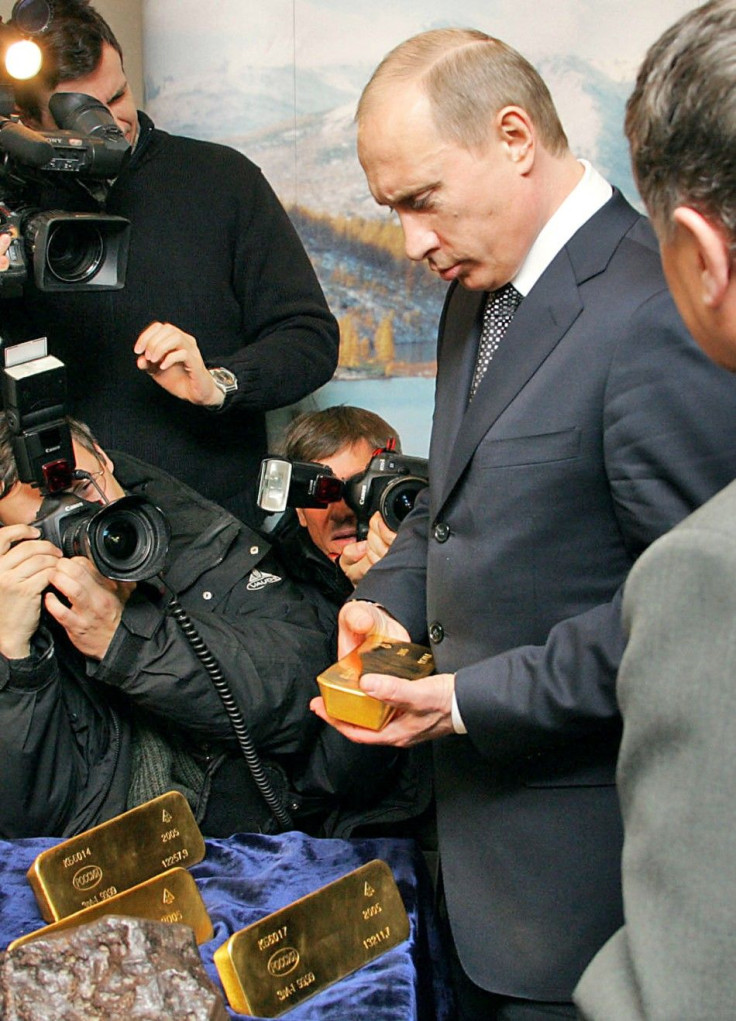Russia Wooing EU Right Wing Parties By Tapping Into Their Discontent Over Brussels Diktats

Though the European Union has locked horns with Russia over Ukraine with a plethora of sanctions and NATO-led military posturings, Russia is quietly having its way in Europe by wooing important rightist parties there, which are uncomfortable with the centralised, domineering ways of the EU leadership run by Brussels. Russia has succeeded in getting a good response from many states, including the U.K., France, Germany, Austria and Hungary, to mention a few.
Despite the pain of economic sanctions, Kremlin has patronised France's xenophobic Front National party and several politicians from other European Union states. They include three German parties-- the neo-Nazi National Democratic Party, the Eurosceptic Alternative for Germany and the Social Democrats, reported The Independent.
The Russian agenda is driven by its apprehension that the EU and NATO will push their wings into more countries under its sphere of influence, underscores a report by George Jahn of Associate Press. But Russia has made it known that it will not tolerate such a scenario mutely and is already showing what it can do, with Ukraine as a curtain-raiser. Cultivating right wing EU politicos seems to be the Russian answer to the diplomatic chill over Ukraine and a subtle way to spread its influence in the West. In that, Russia is trying to play up on the existing discontent over the dossier-style rule of Brussels upon many EU states which want to cut the EU to size.
Toadying To America
According to AP News report, most rightist parties of Europe see a robust EU as anti-thetical to their vision of Europe as a loose union, bound by strong national states. Also, many see EU is toadying to America. Most of the EU right wing parties owe their popularity to the perception that EU-friendly parties are responsible for the continent's economic woes. "What Russia telling them is, it is for you to be the way you are,'" says analyst Melik Kaylan, associated with the Institute of Modern Russia. He said the Russian take is "You are authoritarian. We are authoritarian. Let's work together against the West."
Certainly, the club of Russian admirers is swelling. The French rightist party, National Front, is not hiding its love for Russia. Its founder, Jean-Marie Le Pen, told The Associated Press recently that "France and Russia have a commonality of interest." The party envisions Europe as a power stretching from the Atlantic to the Urals as a pan-European union, including Russia. This concept is supported by other right-wing parties as well. Nationalist Hungarian Prime Minister Viktor Orban also sees Russia as an ideal political model for his concept of an "illiberal state." The same excitement is evident at Britain's euroskeptic Independence Party, whose leader Nigel Farage has said Mr Putin is his most admired world leader, "as an operator, if not as a human being."
Hungary's anti-Semitic Jobbik and Austria's Freedom Party are also equally excited on Russia. In fact, Jobbik MP Bela Kovacs, known as "KGBela" was even investigated in Hungary for the charge of being a spy of Russia. Austria's Freedom Party firebrand Johann Gudenus, in a recent visit to Moscow, accused the European Union of kowtowing to "NATO and America" and blasted the influence of the "homosexual lobby" in Europe.
Financial Rewards
Russia is also offering financial rewards to the fans. Hungary's Russian admirer Orban signed a nuclear reactor deal with Moscow. There is buzz in France over the National Front's recent 9 million euro loan from a Russian bank, owned by a close friend of Mr Putin, despite its leader Marine Le Pen defending the loan, saying it is "perfectly legal and we will reimburse perfectly legally." He said the party turned to Russia after its request was rejected by the western banks.






